You might have seen a chef using a butane torch when cooking, which leaves you baffled and wondering, are butane torches safe? Nothing to wonder, butane torches are safe to use if they’re handled with care and in the right conditions. Chefs use butane torches to achieve the desired crust on delicacies, which burns at 2,610 degrees.
Further, butane torches are favored at home for simple home improvement hacks like plumbing. Butane melds metals, wires or loosens mechanical fasteners, but you must use them with a lot of caution as the gas is highly flammable.
Let’s look into the possible dangers of using butane gas.
Is butane safe to use indoors?
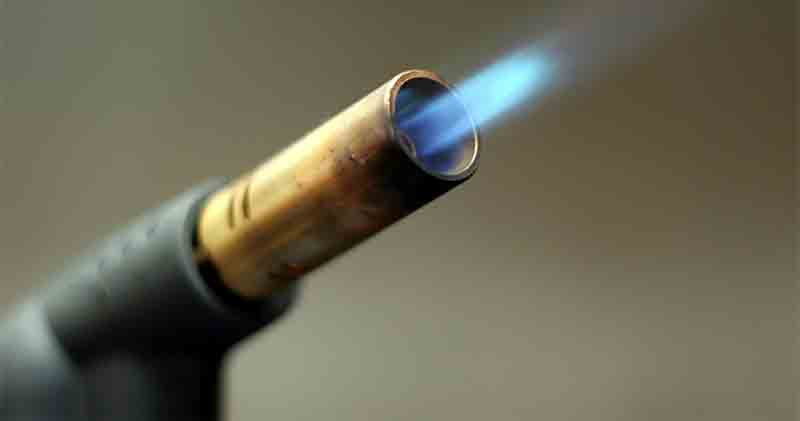
Butane gas is hazardous to use indoors or in confined spaces, which leaves concerns like, is butane safe for cooking? Well, the gas is safe for cooking if you apply a few safety rules, like sufficient ventilation to prevent inhaling too much butane or carbon dioxide (CO2). Further, you should ensure that it’s certified for indoor use before using butane gas.
Now that butane poses a potential danger, it’s vital to find out whether it’s safe to eat food prepared. For instance, people use foil to grill meat or other foods even after it’s linked to causing Alzheimer’s. But, the outcome in both scenarios depends on how much foil or butane is used to cause harm.
Butane turns into gas at room temperature, meaning it evaporates, and little or none remains in your food. In addition, butane is alkaline, meaning when it burns off, it produces nothing harmful to worry about.
Further, butane makes for safe indoor cooking without electricity. However, for cooking purposes, is butane safer than propane indoors? Indeed, butane is much safer than propane as it’s a non-toxic gas, while the latter is flammable and toxic, creating a danger to the atmosphere.
Is butane safe to use outdoors?
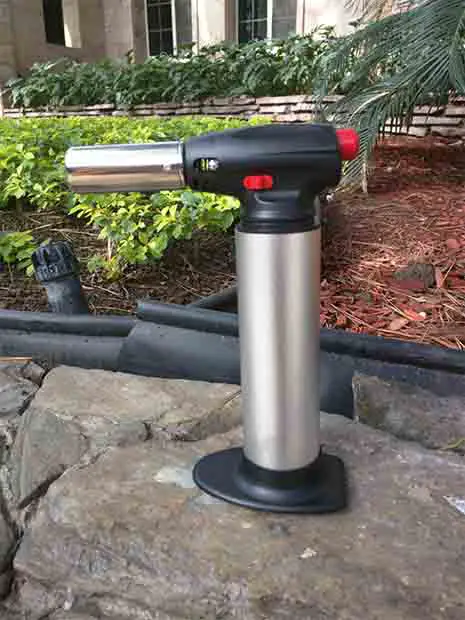
Butane is safe outdoors if you follow safe handling measures to prevent injuries. The gas is cheaper than other options, and you can use it to heat smaller heaters or barbecues conveniently because it has a low boiling point. Here are more reasons to use butane outdoors.
- It works fast and reaches the maximum instantly, so you can start cooking immediately.
- Attaching and detaching butane canisters and cartridges is easy, making it a better option.
- The gas is eco-friendly as it has a less carbon print. However, inhaling it is toxic.
- Butane is light, easy to carry outdoors, and energy efficient, meaning you don’t need many canisters.
- Butane is inexpensive, readily available, but a powerful source of fuel.
What are the health risks of butane torches?
The health risks of butane torches are minimal when properly used, but the gas is highly flammable and toxic if mishandled. Smokers use butane lighters because they’re cheap, easy to access, and convenient. One of its characteristics is that butane quickly turns into gas at room temperature.
When compressed, butane is liquid, but at low pressure, it becomes gas. These properties make a lighter easy to use; when pressured, some liquid gas turns gaseous and squirts out to flame after a spark.
However, if not properly handled, you can get butane poisoning from lighter. Here are the health risks of butane gas.
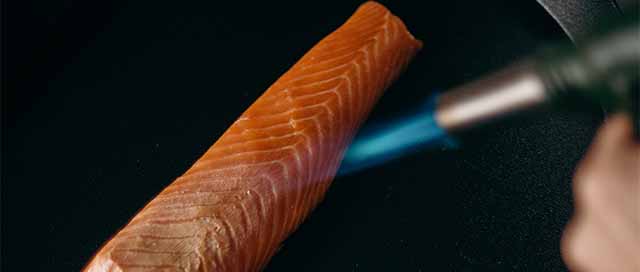
Inhalation
Inhaling butane in bottles or aerosols causes a quick high, but it’s hazardous to your health. Here are some of the immediate short-term effects of inhaling butane gas.
- Dizziness and Drowsiness
- Vomiting
- Headaches
- A shift in Blood Pressure
- Memory Loss
Although inhaling butane gas is hazardous, proper use of the gas to cook has no side effects. However, inhaling butane can cause long-term health effects or become fatal in worse situations. Here are the health effects of inhaling butane.
- Kidney and liver damage
- Variations in Bone Marrow
- Damage to the nervous system and brain.
Explosion
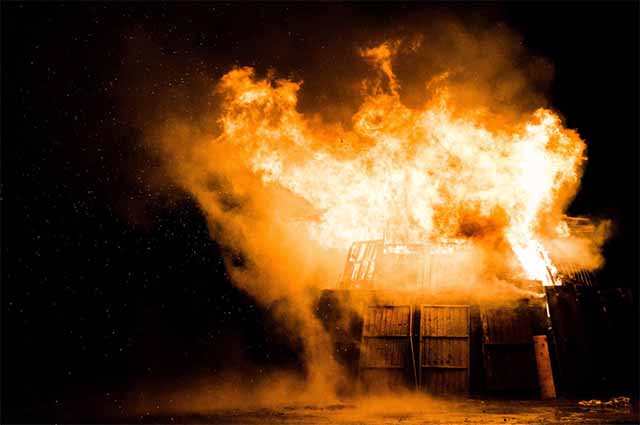
As mentioned, butane gas is compressed into canisters, making it flammable. Thus, it can quickly explode if the gas is not stored correctly. Proper butane gas storage should be in appropriate gas canisters, in a cool area, and away from direct sunlight.
And if butane gas gets on your skin, the question is butane toxic to skin must be boggling. Butane exposure to the skin is dangerous as it can cause freeze burns or frostbite. This is why ensure that where you store butane gas canisters is away from other flammable materials like aerosols and always keep them upright.
Discussion on safety of butane torches
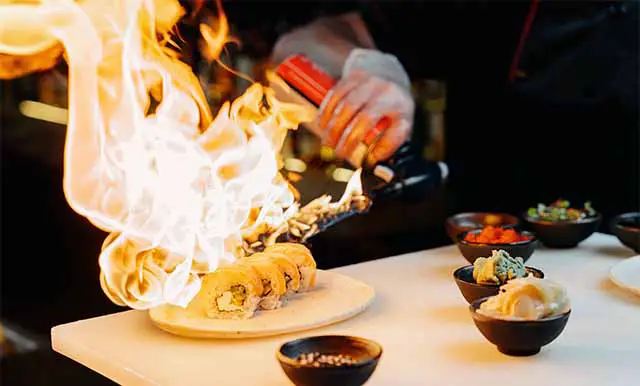
Butane gas is a powerful and one of the most popular fuel sources worldwide. However, improper use of the gas can be hazardous, and in the worst scenarios, it can be fatal. To avoid these dangers, it’s vital to ensure the proper handling of butane to prevent these risks.
The gas is a colorless, highly flammable, and odorless gas that liquefies quickly, explaining why it’s ideal for cooking. Due to these factors, improper use of butane makes sit a health hazard. But, the following best practices indoors and outdoors will keep you safe from the dangers of butane torch.
- Don’t wear clothes made from highly flammable fabrics when using a butane torch, whether you’re a dabber or scientist.
- The area you’re using butane gas must have proper ventilation.
- Ensure that there’s a working fire extinguisher anywhere you use a butane torch as a safety measure in case of an accident.
- Use refined butane like Puretane or whip your torch to ensure it’s not clogged with impurities, as this can impede the torch’s function, making it unsafe for use.
- If your household has children, your butane torch must have a safety lock to ensure it’s locked when not in use.
- Wear protective gear when using a butane torch at home or work.
- Use just enough flame for a specific purpose; get a butane torch with an adjustable flame.
Frequently Asked Questions (FAQs)
What are the risks associated with butane torches?
The risks associated with butane torches are inhalation, exposure to skin, and explosion. Acute inhalation can result in brain damage, liver or kidney failure, ventricle clogging, and cardiac arrest.
What are the dangers of using butane torches incorrectly?
Butane dangers are diverse. They range from inhaling, explosion, leaks, and skin exposure. Therefore, ensure that you use a butane torch as the manufacturer directs and never smoke around it.
Are there any other safety hazards to be aware of when using a butane torch?
When using butane, know it’s highly flammable and an explosion hazard. Additionally, don’t inhale or expose it to the skin. Keep butane canisters in a cool place, away from direct sunlight, and use them in well-ventilated spaces.
Should I always wear eye protection when using a butane torch?
You should always wear eye-protective gear when using a butane torch as a safety precaution. Butane torches are filled with pressurized gas, meaning it’s highly flammable. Therefore, ensure you read safety procedures on a torch before use and exercise them accordingly.
How do I know if a butane torch is certified safe to use?
You’ll know a certified safe-to-use butane torch if it’s tested and released for sale. However, if you’re in doubt, ask the seller whether it’s certified as safe for use.
Final Verdict
Are butane torches safe? The gas is flammable, but the risks outlined above are unlikely to happen if adequately used. You must follow the recommended procedures when properly handling the gas and storing butane canisters.
Take precautions when refilling butane canisters and think hard before handling unauthorized gas. Purchase a portable propane stove for indoor use, as you can use it for cooking or plumbing needs if you live in a cold area.
Also read – The Best Way to Use a Propane Torch Upside Down – Safe and Easy!
